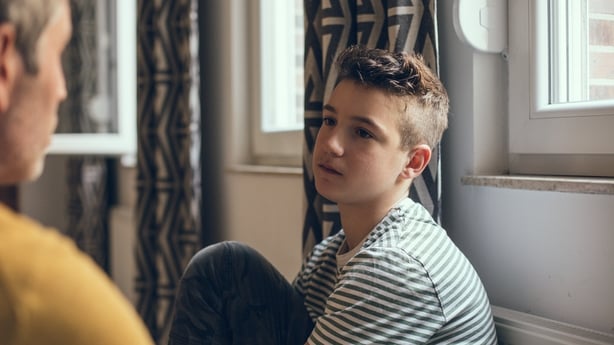When Kate Middleton revealed in a video statement last Friday that she is undergoing cancer treatment, noting specifically how much time she and her husband Prince William took to tell their three children the news, it sparked a conversation about the best way to have such difficult discussions.
How much do you tell them, and what do you hold back? How do you phrase it for particularly young children?
Wendy Moynan, a Senior Social Worker at Tallaght University Hospital who regularly deals with families coping with serious illness, joined Drivetime to share her advice on talking to children and young people about a parent or loved one who is unwell.

"I can't emphasis enough how crucial it is to communicate and support children and young people of all ages when someone important in their lives has a serious illness", she said.
When it comes to deciding what to say and when, she explained: "For parents, they know their children very well. It is really important to think about the age of the child or young person in terms of how much information you give them and the words that you might use.
"Pick a good time for you and the child or young person, have enough quiet time, uninterrupted time", she suggested, adding that "it isn't just one conversation".
"Once children are told about an illness then often they need time to process that information and they may want to ask questions and talking can take place in normal everyday activities like driving to school or hanging out the washing or watching TV."
"I think it's very important to be honest with children", she said, adding that this can include being upfront when you don't have all the answers. "It's okay to say to children, 'I don't know but maybe I'll try to find out and I'll come back to you.'"

This can be a delicate line to walk, especially when it's bad news you are sharing. However, Wendy insists that honesty is very often the best policy.
"If you ask children and young people what they want, they want honesty", Wendy said. "They want to be told if things aren't getting better, in terms of preparing themselves for whatever may be ahead. Often they're putting the pieces together even if you're not being upfront with them about it."
Keeping a "consistent and accurate message" among all the people who are close to the child is important, too, Wendy said.
If you're concerned about how much detail to give or how much to hold back, she suggested starting by asking what the child or young person is worried about. Ultimately, however, this will have to be a "judgement call", based on each family.
To listen back to the full interview, click above.

